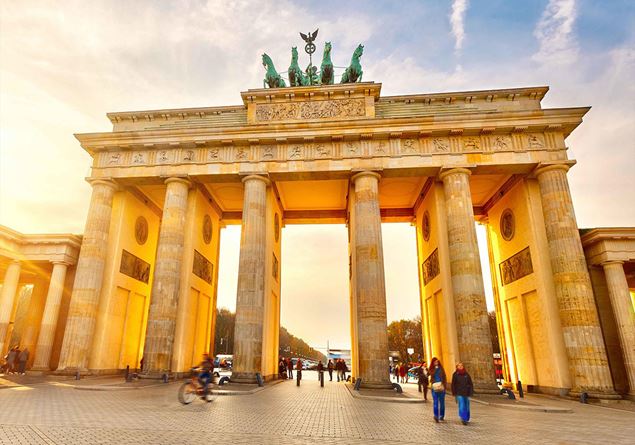by Lorenzo Rossi
The German election campaign takes place in a climate of great tension, where international challenges and threats to internal security have taken over on any other political agenda. The outgoing chancellor Olaf Scholz, leader of the SPD and the aspiring chancellor Friedrich Merz, at the head of the CDU, are facing not only a hard electoral competition, but also a series of crises that threaten the euro-Atlantic axis and stability of the country.
International conflicts and the Ukrainian case
In the context of the war in Ukraine, Scholz underlined the impossibility of a truce since the early hours of the day: “We are far from a respite in Ukraine,” he said, leaving little room for the hypothesis of an imminent deployment of troops. In the afternoon, the Chancellor contacted the Ukrainian President Zelensky by telephone, highlighting the urgency of a common strategy by Europeans. Friedrich Merz also expressed his bewilderment, criticizing the president of the United States for having adopted the Russian “narrative”. In an evening rally in Oberhausen, Merz remarked on the importance of strengthening the European position, inviting moderate parties to speak with a single voice. “Legging to sit at the Table of the negotiations on Ukraine is not the right thing to do,” he said, underlining the need for Europe to acquire weight starting from its resources.
The internal security crises
Parallel to tensions on the international front, internal security in Germany has become a central theme. The day saw alarming episodes: a man was stabbed near the Shoah memorial, while the authorities arrested an eighteen -year -old Cecceno, stopped at the airport while he was about to join ISIS. The suspect was in fact at the center of an investigation for planning an attack on the embassy of Israel in Berlin. The atmosphere of instability is further fueled by the recent actions of the extremist group that has channeled its propaganda, inviting the followers to perform violent acts inspired by what happened in Munich, where an attacker overwhelmed with a car an event, causing the death of A two -year -old girl and her mother.
The political landscape and the electoral perspectives
On the internal political front, the polls show an articulated framework: according to the last Forsa detection, the CDU-CSU Union stands at around 28-29%, followed by the SPD (15%), the Greens (13%) and the Linke (8%). The liberals would be 5%, while the AFD competes a surprising 21% of the consents. In this scenario, we often talk about the possibility of a three-way coalition, defined by some as “Kenya” (black-red-green). The debate becomes even more on when moving on to extreme positions. Alice Weidel, leader of the AFD, recently declared in an interview with Morgenmagazine that the euro “will still be abandoned”, harshly attacking the economic rescue policies of the last ten years, which has called “senseless”. These declarations only increase tensions in an already highly polarized electoral climate, especially if we consider the influence of recent endorsement of figures such as JD Vance.
The last day of the election campaign
With the last day of the countryside, the German political scene is preparing for a great intensity ending. While Merz will close his rally in Munich, Scholz will perform in Potsdam, offering voters the last opportunity to listen to their respective visions for the future of the country. In this period of strong divisions and crises of various kinds, Germany’s stability remains a reassuring element, despite the presence of radical political forces and the continuous pressure of international crises. The evolution of the situation, both on the national and international front, suggests that the new German government will have to face complex challenges, trying to combine a strengthening of the European unit with the management of safety crisis and internal political tensions. Only time will be able to say whether this breaking of the Euro-Atlantic axis and the intense political polarization will lead to a structural change in German governance and, consequently, in the strategic structure of Europe.










